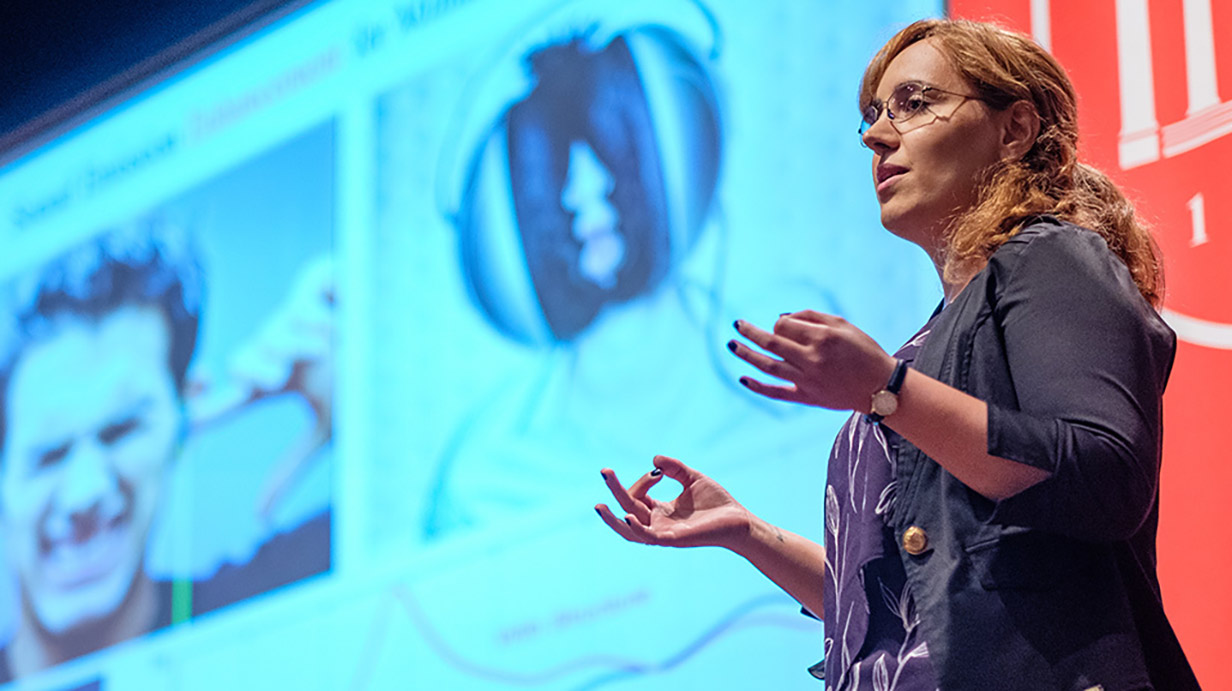Physics, Ph.D.
Be prepared to pursue professional careers in physics, either in academia, as research physicists, or in industry careers.

About the Ph.D. in Physics
The Department of Physics and Astronomy in the College of Liberal Arts offers the Ph.D. in Physics. It is the terminal degree in physics and is designed primarily to meet the needs of students who intend to pursue professional careers in physics, either in academia, as research physicists or in industry careers.
The department has research groups in the following areas:
- condensed matter
- high energy
- gravitational physics
- physical acoustics
On this Page…
Program Information
Degree
Ph.D. in Physics
Required Credit Hours
54
Program Type
Doctorate Program
Program Location
School
Duration
5-7 years
Graduate Program Coordinator
I am delighted to support our graduate students in their academic and research journeys. Our department offers a welcoming and supportive environment with cutting-edge research opportunities, world-class faculty, and a collaborative community dedicated to exploring the fundamental mysteries of the universe. We have research partnerships with the National Center for Physical Acoustics and the Center for Multimessenger Astrophysics. Whether you’re enthusiastic about pursuing research in our offerings within physical acoustics, condensed matter, gravitational, or high energy particle physics, we are committed to helping you succeed and join the ranks of our successful alumni in leading academic and industry roles worldwide. Please feel free to ask any questions—we all look forward to working with you!
Gavin Davies
Associate Professor of Physics and Astronomy and Graduate Program Coordinator
Ph.D. in Physics Program Details
Learn about the application process, academic requirements, financial support, and facilities available to you.
APPLICATION DEADLINE: January 15 (for fall entry) or September 15 (for spring entry)
The Department of Physics and Astronomy welcomes student applications.
- Complete the Graduate School’s Online Application.
- Upload Supplemental Application materials for the department on the online application.
Applicants for graduate admission should have at least a GPA equivalent to a B (3.0 on the US university GPA 4-point scale) in previous university/college studies.
Students in the Ph.D. in Physics complete 54 credit hours, including 36 hours of graduate classroom hours.
- 12 credit hours in 700-level physics courses
- 18 credit hours in 600-level or higher physics courses
- five core courses
- Phys 709: Advanced Mechanics I
- Phys 711: Quantum Mechanics I
- Phys 727: Thermodynamics and Statistical Mechanics
- Phys 721 and 722: Advanced Electromagnetic Theory I, II
- three breadth courses
- Phys 605: Advanced Acoustics
- Phys 607: Atomic and Nuclear Physics
- Phys 637: Fluid Dynamics
- Phys 712: Quantum Mechanics II
- Phys 725: Solid State Physics I
- Phys 731: Quantum Field Theory I
- Phys 733: Elementary Particle Physics
- Phys 735: Gravitational Physics
- 18 hours of dissertation research (Phys 797)
Up to 6 credit hours in a related field, such as mathematics, chemistry, or engineering, are accepted.
Students must pass a comprehensive examination as well as submit and defend a dissertation prospectus and dissertation.
All students teach laboratory or lecture sections for at least two semesters as part of their graduate training. They can obtain a Master of Education degree (M.Ed.) by taking a few more courses and field work.
Support for PhD students is available during degree studies through a combination of teaching assistantships and research assistantships. Students with a graduate assistantship funded in the department receive
- scholarship that covers some or all of the tuition and non-residency fee, if applicable, for regular semesters and
- subsidized health insurance.
For more information, visit Graduate Programs in the Department of Physics and Astronomy.
The Graduate School's financial aid webpage lists a variety of funding possibilities.
LEWIS HALL
The Department of Physics and Astronomy is housed primarily in Lewis Hall. Several faculty and graduate students have offices and research space in the Jamie Whitten National Center for Physical Acoustics nearby on campus. The Kennon Observatory, adjacent to Lewis Hall, houses astronomy labs. Lewis Hall houses some upper-division teaching laboratories in undergraduate physics and astronomy courses. The department's machine shop is equipped with a large computer-controlled lathe, three computer-controlled mills, and a computer-controlled measuring machine. The shop employs a full-time machinist.
DUFF CENTER FOR SCIENCE AND TECHNOLOGY INNOVATION
The University of Mississippi’s ambitious initiative to construct one of the nation’s leading student-centered learning environments for STEM education opened in Fall 2024. The 202,000-square-foot building has extensive dedicated space for basic undergraduate teaching labs for the Department of Physics and Astronomy.
KENNON OBSERVATORY
The department has a variety of telescopes used in astronomy laboratories. These include a portable 25-inch Dobsonian telescope, a 15-inch refracting telescope (the Grubb Twin Equatorial Telescope, purchased in 1892) mounted in the large dome of Kennon Observatory, and a 17-inch Plane Wave Corrected Dall Kirkham (CDK) telescope on a Paramount ME mount and outfitted with a CCD camera is mounted in the small dome. Additional 8-inch and 12-inch portable telescopes are also used for astronomy lab courses.
JAMIE WHITTEN NATIONAL CENTER for PHYSICAL ACOUSTICS (NCPA)
NCPA contains the technical and support facilities of a world-class research program. This facility includes a high-bay laboratory, an anechoic chamber, and a large open bay with subsonic and supersonic wind tunnels. Smaller laboratory rooms are electromagnetically and mechanically isolated, and the 80-seat auditorium is acoustically isolated. Supporting the acoustics research effort are an electronics shop, a carpentry shop, and a fully-equipped machine shop.
The Department of Physics and Astronomy has access to the extensive research and computing facilities of The University of Mississippi. Researchers on campus have easy access to facilities of the Mississippi Center for Supercomputing Research.
Department of Physics and Astronomy
Department Video
Hear firsthand from students, faculty, and staff about the Physics program.
Next Steps
Explore Affordability
We have a variety of scholarships and financial aid options to help make college more affordable for you and your family.
Apply to the University of Mississippi
Are you ready to take the next step toward building your legacy?
